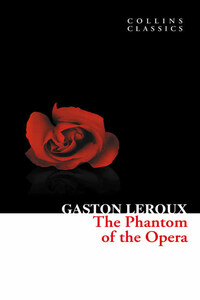In Which the Author of This Singular Work Informs the Reader How He Acquired the Certainty That the Opera Ghost Really Existed
The Opera ghost really existed. He was not, as was long believed, a creature of the imagination of the artists, the superstition of the managers, or a product of the absurd and impressionable brains of the young ladies of the ballet, their mothers, the box-keepers, the cloak-room attendants or the concierge. Yes, he existed in flesh and blood, although he assumed the complete appearance of a real phantom; that is to say, of a spectral shade.
When I began to ransack the archives of the National Academy of Music I was at once struck by the surprising coincidences between the phenomena ascribed to the âghostâ and the most extraordinary and fantastic tragedy that ever excited the Paris upper classes; and I soon conceived the idea that this tragedy might reasonably be explained by the phenomena in question. The events do not date more than thirty years back; and it would not be difficult to find at the present day, in the foyer of the ballet, old men of the highest respectability, men upon whose word one could absolutely rely, who would remember as though they happened yesterday the mysterious and dramatic conditions that attended the kidnapping of Christine Daaé, the disappearance of the Vicomte de Chagny and the death of his elder brother, Count Philippe, whose body was found on the bank of the lake that exists in the lower cellars of the Opera on the Rue-Scribe side. But none of those witnesses had until that day thought that there was any reason for connecting the more or less legendary figure of the Opera ghost with that terrible story.
The truth was slow to enter my mind, puzzled by an inquiry that at every moment was complicated by events which, at first sight, might be looked upon as superhuman; and more than once I was within an ace of abandoning a task in which I was exhausting myself in the hopeless pursuit of a vain image. At last, I received the proof that my presentiments had not deceived me, and I was rewarded for all my efforts on the day when I acquired the certainty that the Opera ghost was more than a mere shade.
On that day, I had spent long hours over The Memoirs of a Manager, the light and frivolous work of the too-sceptical Moncharmin, who, during his term at the Opera, understood nothing of the mysterious behaviour of the ghost and who was making all the fun of it that he could at the very moment when he became the first victim of the curious financial operation that went on inside the âmagic envelope.â
I had just left the library in despair, when I met the delightful acting-manager of our National Academy, who stood chatting on a landing with a lively and well-groomed little old man, to whom he introduced me gaily. The acting-manager knew all about my investigations and how eagerly and unsuccessfully I had been trying to discover the whereabouts of the examining magistrate in the famous Chagny case, M. Faure. Nobody knew what had become of him, alive or dead; and here he was back from Canada, where he had spent fifteen years, and the first thing he had done, on his return to Paris, was to come to the secretarial offices at the Opera and ask for a free seat. The little old man was M. Faure himself.
We spent a good part of the evening together and he told me the whole Chagny case as he had understood it at the time. He was bound to conclude in favour of the madness of the viscount and the accidental death of the elder brother, for lack of evidence to the contrary; but he was nevertheless persuaded that a terrible tragedy had taken place between the two brothers in connection with Christine Daaé. He could not tell me what became of Christine or the viscount. When I mentioned the ghost, he only laughed. He, too, had been told of the curious manifestations that seemed to point to the existence of an abnormal being, residing in one of the most mysterious corners of the Opera, and he knew the story of the envelope; but he had never seen anything in it worthy of his attention as magistrate in charge of the Chagny case, and it was as much as he had done to listen to the evidence of a witness who appeared of his own accord and declared that he had often met the ghost. This witness was none other than the man whom all Paris called the âPersianâ and who was well-known to every subscriber to the Opera. The magistrate took him for a visionary.








